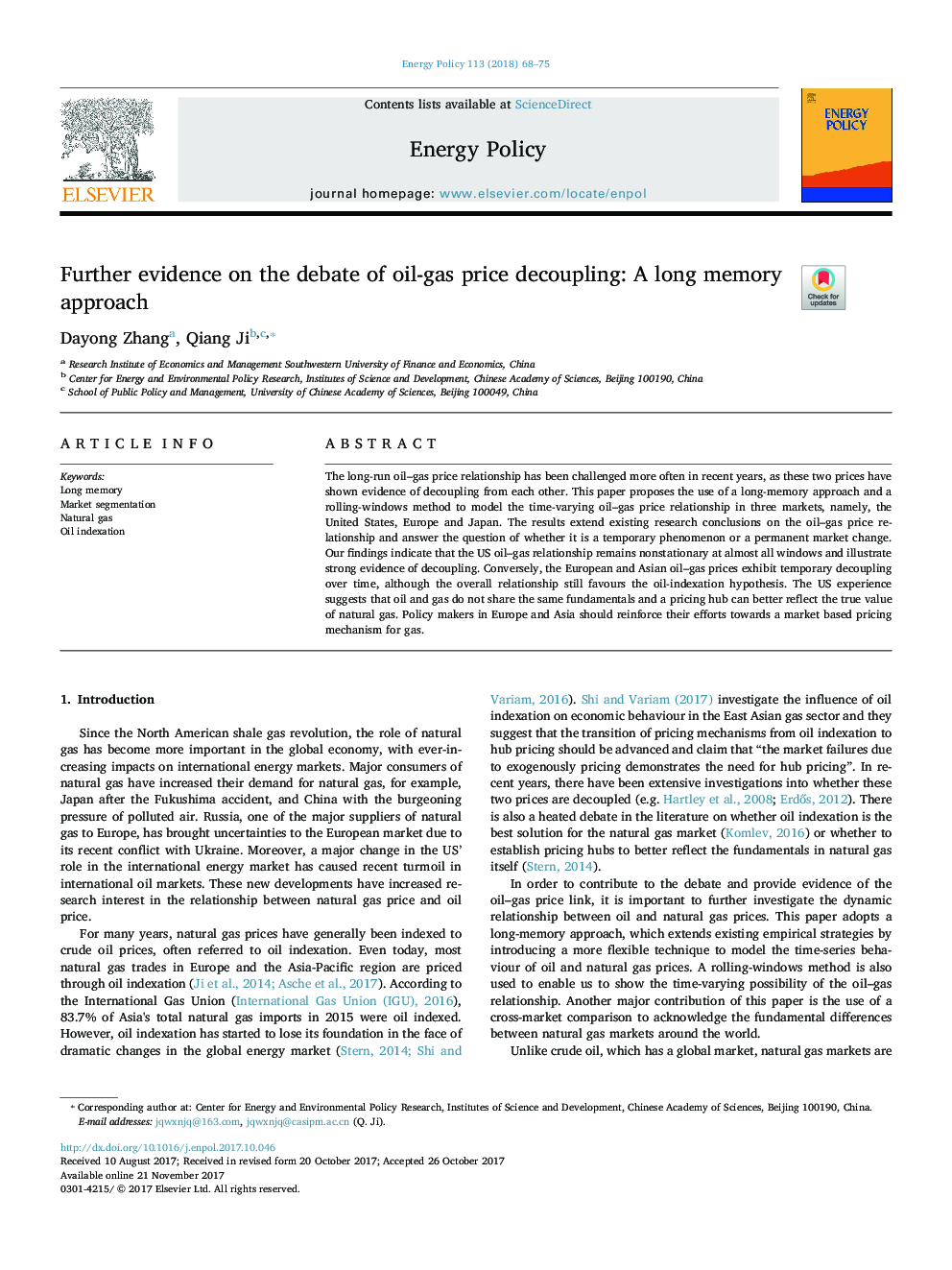| Article ID | Journal | Published Year | Pages | File Type |
|---|---|---|---|---|
| 7398087 | Energy Policy | 2018 | 8 Pages |
Abstract
The long-run oil-gas price relationship has been challenged more often in recent years, as these two prices have shown evidence of decoupling from each other. This paper proposes the use of a long-memory approach and a rolling-windows method to model the time-varying oil-gas price relationship in three markets, namely, the United States, Europe and Japan. The results extend existing research conclusions on the oil-gas price relationship and answer the question of whether it is a temporary phenomenon or a permanent market change. Our findings indicate that the US oil-gas relationship remains nonstationary at almost all windows and illustrate strong evidence of decoupling. Conversely, the European and Asian oil-gas prices exhibit temporary decoupling over time, although the overall relationship still favours the oil-indexation hypothesis. The US experience suggests that oil and gas do not share the same fundamentals and a pricing hub can better reflect the true value of natural gas. Policy makers in Europe and Asia should reinforce their efforts towards a market based pricing mechanism for gas.
Related Topics
Physical Sciences and Engineering
Energy
Energy Engineering and Power Technology
Authors
Dayong Zhang, Qiang Ji,
